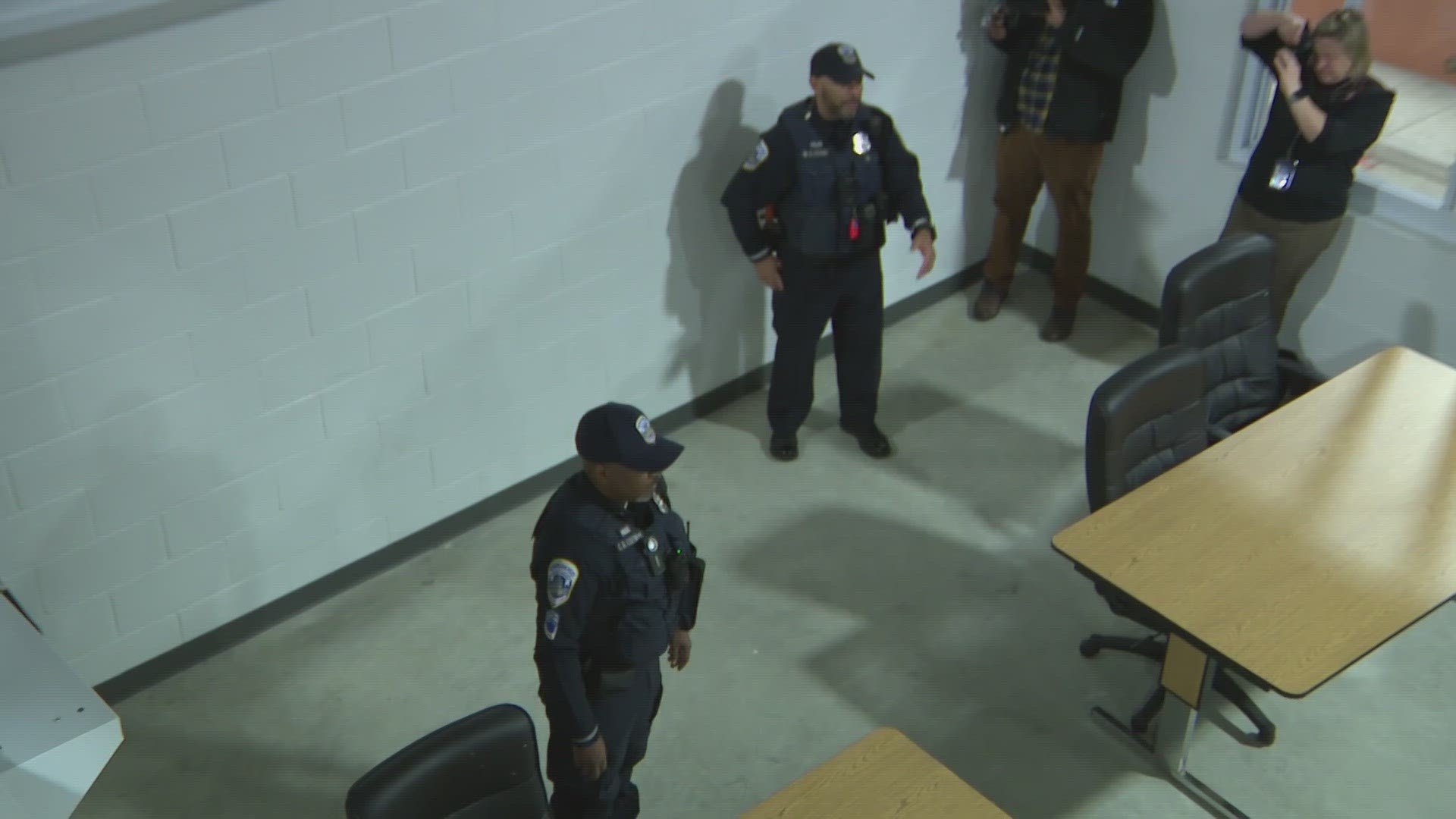WASHINGTON D.C., DC — All officers with the Metropolitan Police Department will be required to complete additional de-escalation training in order to learn how to help those in a mental health crisis.
Police Chief Pamela Smith told reporters that starting the second week of January, her officers will begin the Integrating Communications, Assessment, and Tactics (ICAT) program created by the Police Executive Research Forum that consists of 16 hours of training.
"The goal of ICAT is to not eliminate police uses of force, but to provide our officers additional skills that allow them to handle a range of critical incidents safely and successfully," Smith told reporters.
Since 2009, D.C. police have received training in crisis intervention, according to Smith.
During the presentation, police officers acted out scenarios and pointed out how the new tactics could help diffuse tense situations.
Commander David Hong explained how multiple police officers can respond to a mental health crisis scene, but only one officer leads the conversation with the person. Hong says it helps to not overwhelm the person having the crisis. "I am sure everyone has seen those videos of officers screaming a thousand things at people, that's certainly what we are trying to avoid," Hong said.
In a second scenario, officers responded to a situation in which the person was armed with a bat. The officers engaged with the man as they stood close to the door. "Officers maybe would have bum rushed or could use lethal force because he did have a bat but that was the whole purpose of them staying near the doorway," Hong added. He says communication and slowing down the situation is key in these tense situations.
While MPD plans to roll out the program, Chief Smith is also advocating to amend the District's current legislation on neck restraints.
Currently police officers are prohibited from controlling or restricting a person's "movement, blood flow, or breathing." Under Mayor Muriel Bowser's proposed crime bill, the word "movement" would be removed.
Smith has said that the current definition is too broad and has contributed to her officers not taking a hands on approach during apprehensions.
When asked how the new mental health crisis training plays into the changes in the neck restrain policy Smith said, "When you talk about officers having a hands off approach, it's more of the incidental contact around the neck."
A study released in 2020 by the University of Cincinnati indicates that the ICAT program has helped reduce use-of-force incidents by 28%, citizen injuries by 26%, and officer injuries by 36%.
WATCH NEXT:

